
Sometime back in 2014 I decided we’d spend the next few summers at IDC walking through the Pentateuch. It’s impossible to understand the rest of Scripture from the first five books. Also, because they are largely narratives, we wouldn’t need to spend years upon years getting through them.
So, last summer we journeyed through Genesis, largely shaping each sermon around a particular character or patriarch. June 2016 came around, and we began Exodus. The plan was to finish up chapter 40 at the end of September. But God’s Spirit gave me a hitch about that scheme, a hitch that asked, “Why not preach a “series within a series” on the 10 Commandments?”
I may never again preach through Exodus. Did I want to miss out on the opportunity to think carefully about one of the Old Testament’s most important sections?
An Oddly Compelling People
As we lead our little congregation, there are a few things we want to be true about IDC (a praying, disciple-making, welcoming, and singing church). Should God allow these few things to flourish in our lives, we believe a kind of congregational life will arise. You could call this corporate life as being mere faithfulness. But we like to think of it as oddly compelling. We find Scripture instructing God’s people to love the Lord in such a way that the world thinks us odd. But odd need to be off-putting. It seems to us that the biblical view of “odd” is quite compelling. “People will see your good works and glorify your Father in heaven,” Jesus said. Faithful churches are strange to the culture—strangely attractive.
What best summarizes the church’s oddly compelling lifestyle? Those “Ten Words” once written on stone tablets, now written on human hearts.
Recovering a Forgotten Friend
I could be my personal experience, but a special study of the 10 Commandments seems to have disappeared from evangelicalism. The saints of old would give us a good talking to about this. For what were the ordinary tools of catechesis the church used throughout the centuries? The Apostle’s Creed, the Lord’s Prayer, and . . . yep . . . the 10 Commandments.
I have many theories on why gospel-preaching churches no longer hold the Stone Tablets’ hands. The fundamental reason surely is the widespread neglect of the Old Testament in most churches. We’ve so rightly divided Scripture that we assume the Old Testament belongs not only to a different age but different people. But even if you’re theologically convinced the Commandments belong to a former age, you can’t deny that they are still instructive—in some way—today (Rom. 15:4; 1 Cor. 10:6, 11).
At least that’s what we believe at IDC. So, Lord willing, on September 11th we will stare at those stony scratches Moses made.
7 Useful Resources
I’m thankful there is a cottage industry of resources on the 10 Commandments. But cottages tend to get crowded. Best friends can thus be hard to find. Here then are some of the most helpful resources I’ve found in my study (with publishers’ description included).
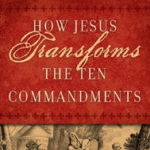 How Jesus Transforms the Ten Commandments by Edmund Clowney. For many Christians, conditioned to emphasize our freedom from the law, Jesus’ words seem strange, even incompatible with the gospel of grace. If Jesus did not abolish the law, then how should we look at the Ten Commandments today?
How Jesus Transforms the Ten Commandments by Edmund Clowney. For many Christians, conditioned to emphasize our freedom from the law, Jesus’ words seem strange, even incompatible with the gospel of grace. If Jesus did not abolish the law, then how should we look at the Ten Commandments today?
Clowney explains how Jesus intensifies the law and expands its scope to every situation in life. But as the author did so often during his ministry, he goes further, finding Christ in the law and showing how he fulfills it for his people. Thus believers will learn more, not only of God’s character revealed in the law, but also of the gospel with its focus on Christ.
Divided into eleven chapters, each with study questions for reflection and application, this book is an ideal resource for group study and personal growth.
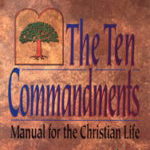 Ten Commandments: Manual for the Christian Life by Joachim Douma. The Ten Commandments provide “the fundamental pointers we need for our concourse with God and our neighbors,” writes Professor J. Douma in this work. As the subtitle indicates, the Ten Commandments are a manual for the Christian life, relevant to all thought and experience.
Ten Commandments: Manual for the Christian Life by Joachim Douma. The Ten Commandments provide “the fundamental pointers we need for our concourse with God and our neighbors,” writes Professor J. Douma in this work. As the subtitle indicates, the Ten Commandments are a manual for the Christian life, relevant to all thought and experience.
In this commentary on the commandments, Douma tackles the difficult yet practical issues of our time with insight, thoroughness, and faithfulness to God’s word. Discussions of the commandments span current issues from religious art to sorcery and witchcraft, from Sunday observance to civil disobedience, from abortion to euthanasia and suicide.
Because the commandments speak to every area of life, this volume lends itself to a wide range of uses. Pastors, professors, counselors, and thoughtful laypeople will gain much wisdom and direction from this careful, up-to-date exposition of the Ten Commandments.
 The Rule of Love: Broken, Fulfilled, and Applied by J.V. Fesko. In The Rule of Love, J. V. Fesko gives an introductory exposition of the Ten Commandments. Beginning with the importance of the prologue, and then addressing each Commandment in turn, he sets forth a balanced and biblical approach that places the law in proper perspective. Throughout the book, Fesko analyzes the historical context of God’s giving the law in order to help us accurately understand the moral demands God places upon humanity.
The Rule of Love: Broken, Fulfilled, and Applied by J.V. Fesko. In The Rule of Love, J. V. Fesko gives an introductory exposition of the Ten Commandments. Beginning with the importance of the prologue, and then addressing each Commandment in turn, he sets forth a balanced and biblical approach that places the law in proper perspective. Throughout the book, Fesko analyzes the historical context of God’s giving the law in order to help us accurately understand the moral demands God places upon humanity.
Yet, Fesko does not stop there; he also discusses the covenantal and redemptive context in which the law was given. Thus, he shows that the law is not presented to us in order for us to present ourselves right before God. Rather, it demonstrates our failure to love God as we should and points us to Christ and His perfect obedience in all that God requires of us. Fesko also shows how Christ applies the commandments to His people by the indwelling power and presence of the Holy Spirit.
This is an excellent survey of the Ten Commandments that promises to bring about a more accurate understanding of the proper uses of the law, as well as engender profound gratitude for all that God is for us in Christ.
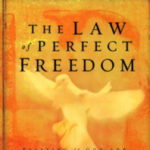 The Law of Perfect Freedom: Relating to God and Others Through the Ten Commandments by Michael Horton. The Ten Commandments are not Moses’ bright ideas or simply God’s suggestions; they are God’s categorical requirements. In The Law of Perfect Freedom, Michael Horton weaves theological truth with practical application to help believers live out the Ten Commandments. Understanding how to live out these commandments brings vitality and victory to our walk with God.
The Law of Perfect Freedom: Relating to God and Others Through the Ten Commandments by Michael Horton. The Ten Commandments are not Moses’ bright ideas or simply God’s suggestions; they are God’s categorical requirements. In The Law of Perfect Freedom, Michael Horton weaves theological truth with practical application to help believers live out the Ten Commandments. Understanding how to live out these commandments brings vitality and victory to our walk with God.
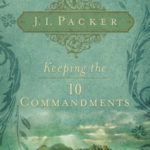 Keeping the Ten Commandments by J.I. Packer. They are often mistakenly considered God’s ‘rules’—his outdated list of do’s and don’ts that add up to a guilt-ridden, legalistic way of life. But as beloved author and Bible scholar J. I. Packer probes the purpose and true meaning of the Ten Commandments, readers will gladly discover that these precepts can aptly be called God’s design for the best life possible. They contain the wisdom and priorities anyone needs for relational, spiritual, and societal blessing—and it’s all coming from a loving heavenly Father who wants the best for his children.
Keeping the Ten Commandments by J.I. Packer. They are often mistakenly considered God’s ‘rules’—his outdated list of do’s and don’ts that add up to a guilt-ridden, legalistic way of life. But as beloved author and Bible scholar J. I. Packer probes the purpose and true meaning of the Ten Commandments, readers will gladly discover that these precepts can aptly be called God’s design for the best life possible. They contain the wisdom and priorities anyone needs for relational, spiritual, and societal blessing—and it’s all coming from a loving heavenly Father who wants the best for his children.
Not only does Packer deliver these truths in brief, readable segments, but he includes discussion questions and ideas for further study at the end of each chapter. This book will challenge readers to view the commandments with new eyes and help them to understand—perhaps for the first time—the health, the hope, and the heritage we’re offered there.
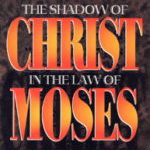 The Shadow of Christ in the Law of Moses by Vern Poythress. What does the Old Testament have to do with Jesus Christ? Everything.
The Shadow of Christ in the Law of Moses by Vern Poythress. What does the Old Testament have to do with Jesus Christ? Everything.
The first five books of the Old Testament were written centuries before the birth of Jesus. Yet they intricately involve him. Here Vern S. Poythress explores Genesis through Deuteronomy, demonstrating how the sacrifices and traditions of the Hebrews graphically foreshadow Christ’s relationship with his people. Dr. Poythress also explains how the penalties of the law refigure the destruction of sin and guilt through Jesus.
Christ himself is the key that unlocks the riches of the Old Testament. With remarkable clarity and insight, Poythress opens the door to our understanding the law of Moses and its relationship to the gospel.
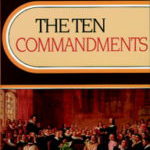 The Ten Commandments by Thomas Watson. In this book Thomas Watson continues his exposition of the Shorter Catechism drawn up by the Westminster Assembly. Watson was one of the most popular preachers in London during the Puritan era. His writings are characterized by clarity, raciness and spiritual richness. The series of three volumes, of which this is the second, makes an ideal introduction to Puritan literature.
The Ten Commandments by Thomas Watson. In this book Thomas Watson continues his exposition of the Shorter Catechism drawn up by the Westminster Assembly. Watson was one of the most popular preachers in London during the Puritan era. His writings are characterized by clarity, raciness and spiritual richness. The series of three volumes, of which this is the second, makes an ideal introduction to Puritan literature.
There are few matters about which the Puritans differ more from present-day Christians than in their assessment of the importance of the ten commandments. The commandments, they held, are the first thing in Christianity which the natural man needs to be taught and they should be the daily concern of the Christian to the last.
In The Ten Commandments Watson examines the moral law as a whole as well as bringing out the meaning and force of each particular commandment. In view of the important function of the law in Christian life and evangelism this is a most valuable volume.
And Don’t Forget!
In addition to the books above, every preacher would be wise to consult the Westminster Shorter Catechism for precise commentary and the Heidelberg Catechism for pastoral counsel. They are like perfectly aged, truth-filled wine for the soul. Your heart will be glad.
Save
Save
Save
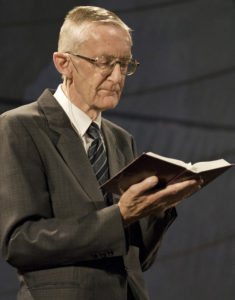 I’ve always found Stuart Olyott to be an underrated servant and preacher. When I preached through Mark’s gospel, few expositions I listed to were as consistently edifying as Olyott’s. He is bold, pithy, and direct—in the best way possible.
I’ve always found Stuart Olyott to be an underrated servant and preacher. When I preached through Mark’s gospel, few expositions I listed to were as consistently edifying as Olyott’s. He is bold, pithy, and direct—in the best way possible.
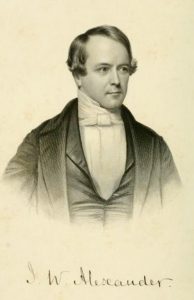

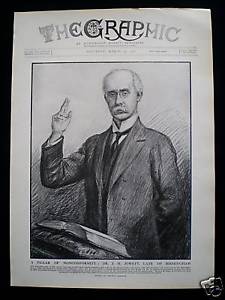 After hearing the great Dr. Fairbairn preach, Jowett told his students at Airedale College, “Gentlemen, I will tell you what I have observed this morning: behind that sermon there was a man.” Although The Preacher provides scant autobiographical information, I had the same sense in reading Jowett’s work—there was a weight in its message.
After hearing the great Dr. Fairbairn preach, Jowett told his students at Airedale College, “Gentlemen, I will tell you what I have observed this morning: behind that sermon there was a man.” Although The Preacher provides scant autobiographical information, I had the same sense in reading Jowett’s work—there was a weight in its message.









